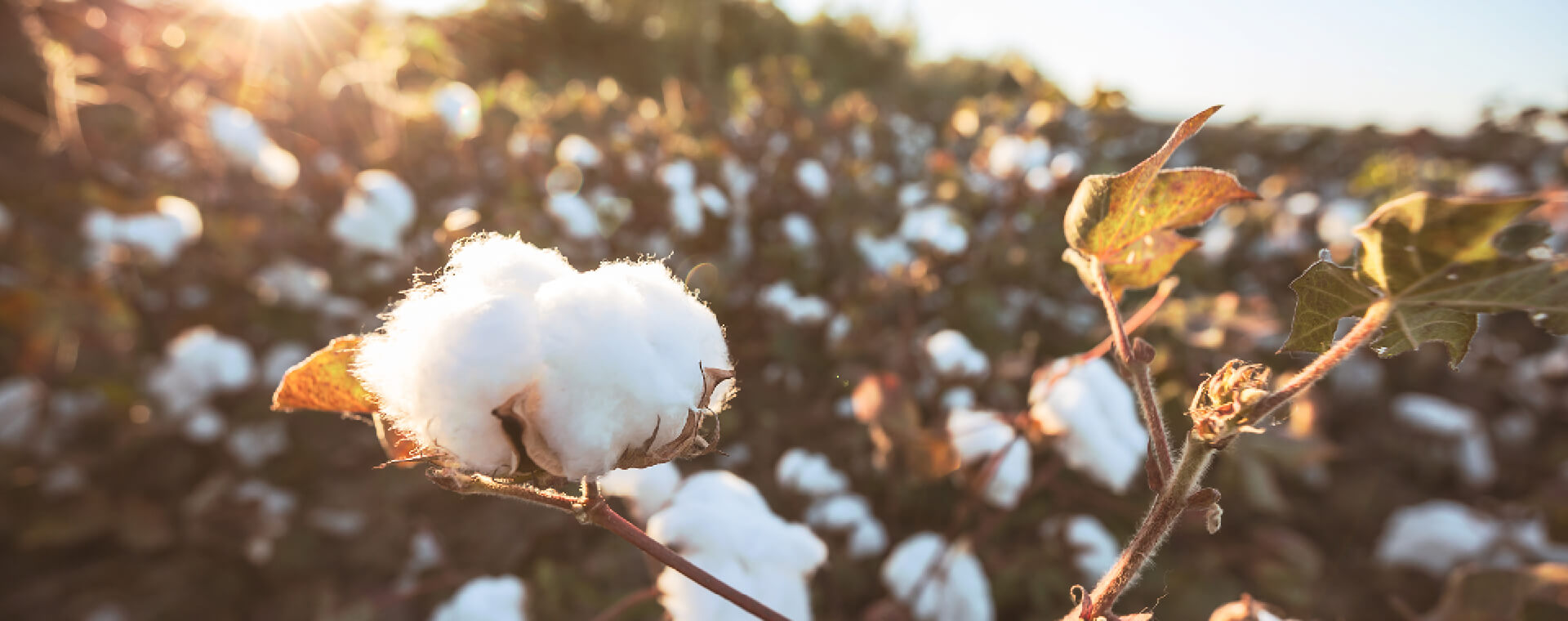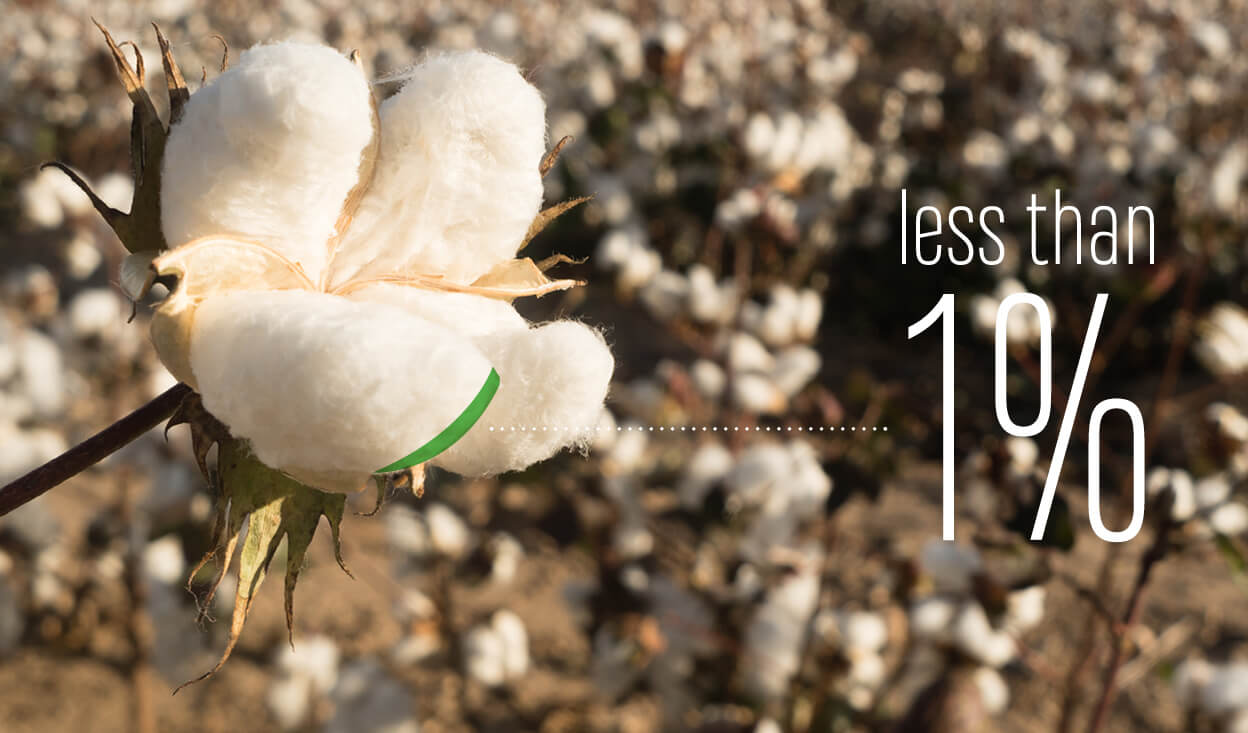

ORGANIC COTTON NEEDS A LITTLE HELP
There was a time when we all thought organic cotton was the key that would unlock the door to more sustainability. Scores of clothing brands and fashion labels embraced organic cotton like it was a queen, and so did we.
Six years ago, B&C Collection introduced a line of organic cotton products. It seemed like the best course of action at the time, and we were eager to act on our commitment to environmental, social and economic sustainability. But it soon became apparent that organic cotton couldn’t do all the hard work alone.
It isn’t the fault of organic cotton that it grew to be so in demand while its supply remains below 1% of global cotton production. Who wouldn’t love organic cotton? It’s the fruit of healthy upbringing and good breeding. But the transition period is so hard for cotton farmers that very few of them can afford to embrace that path.
Today, 99% of them are still engaged in old, conventional farming methods.
Even if organic farming accelerates each year, conventional farming only keeps outpacing it. Organic cotton can’t keep up, putting the supply chain at risk. Clearly, it needs some help from the brands in advancing the cause of sustainability. So, at B&C, we made a decision: embarking the promising path of In Conversion Cotton.


WHAT IS ORGANIC IN CONVERSION COTTON?
Organic In Conversion cotton is the fibre that farmers produce while transitioning from conventional to organic farming. To obtain organic certification, cotton farmers must observe all the rules of organic agriculture and refrain from using any chemicals or GMOs from start to end of a 3-year transition period. It’s as sustainable as organic cotton and certified Organic In Conversion.

FOR GENUINE, LASTING SUSTAINABILITY
Our long-term goal is to reverse the numbers and tip the scales in favour of more organic farming. And we believe the only way to get there is by supporting the farmers who are shifting to organic agriculture today.
Organic certification follows a lengthy and rigorous process that can turn a farmer’s world upside down. To get certified, cotton growers must wean their lands away from chemicals and GMO seeds for three years. Meanwhile, yields may drop due to drastic changes, and farmers stand to lose considerable income.
Our commitment to social, environmental and economic sustainability compels us to take action. By supporting organic in conversion cotton, along with organic cotton, we hope that more farmers will convert to organic farming, chemical agriculture will decrease and organic cotton will finally become the accessible star it was always meant to be.